Billie Eilish’s sophomore album, Happier Than Ever, is a profound exploration of growth, trauma, and self-discovery, all wrapped in her signature alternative pop sound. The album, whose title ironically hints at a complex emotional landscape, takes listeners on a journey through Billie’s evolving experiences and perspectives. Let’s delve into each song of Happier Than Ever and uncover the layers of meaning within this compelling body of work.
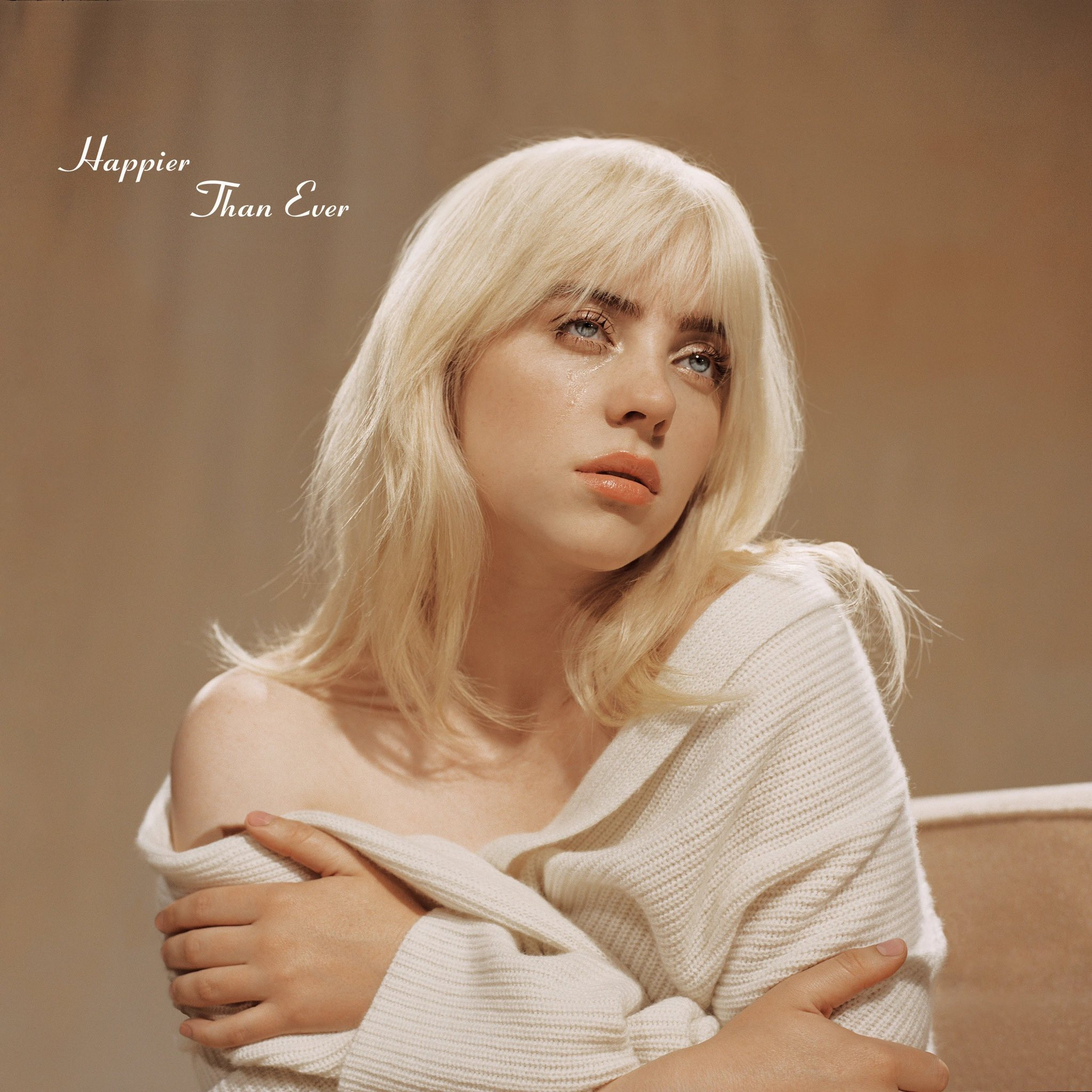 Billie Eilish Happier Than Ever Album Cover
Billie Eilish Happier Than Ever Album Cover
1. Getting Older: Setting the Tone of Vulnerability
The album opener, “Getting Older,” serves as a poignant introduction to the themes explored in Happier Than Ever. With its minimalist production, the song immediately establishes a tone of intimacy and vulnerability. Billie reflects on the past two years of her life, grappling with the complexities of growing up in the public eye, increased responsibilities, and confronting past traumas. The lyrics are strikingly honest, offering a glimpse into her personal journey of self-realization.
In a Spotify interview, Billie described “Getting Older” as a challenging song to write, revealing insecurities and newly realized aspects of herself. This sentiment resonates deeply within the lyrics, particularly in the line, “I’m happier than ever, at least that’s my endeavor.” This lyric is crucial to understanding the album’s overarching theme. Despite the seemingly positive title, Happier Than Ever is not about pure, unadulterated joy. Instead, it portrays happiness as a goal, a work in progress, acknowledging the heavy moments that coexist with progress.
Billie herself clarified this in a Rolling Stone interview, stating that “Almost none of the songs on this album are joyful.” She further explained her mother’s insightful definition of “happier than ever”: it signifies being happier than before, not the happiest possible state. The song concludes with the impactful line, “I’ve had some trauma, did things I didn’t wanna, was too afraid to tell ya, but now, I think it’s time,” perfectly setting the stage for the album’s exploration of these difficult experiences.
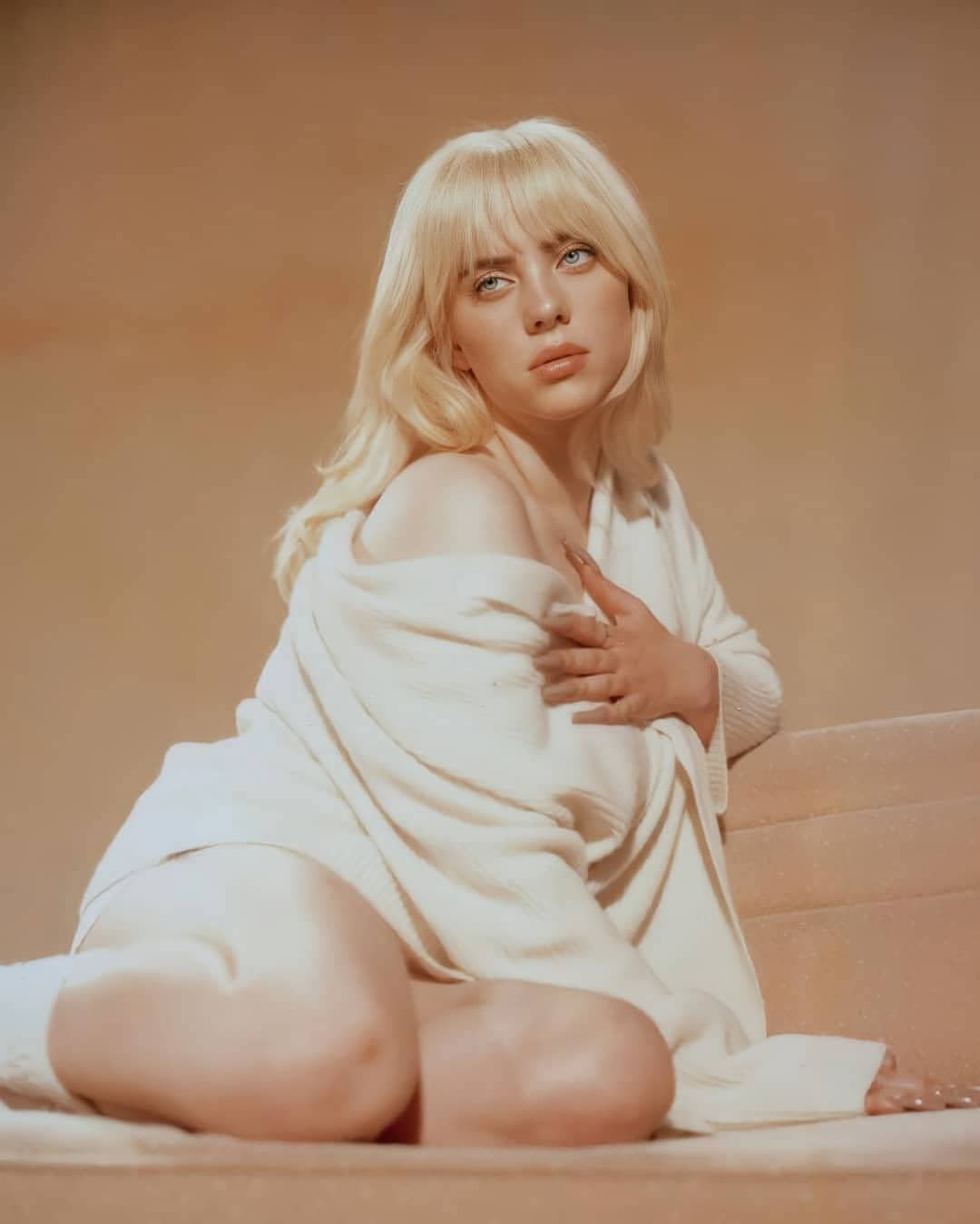 Billie Eilish in a beige outfit
Billie Eilish in a beige outfit
2. I Didn’t Change My Number & 3. Billie Bossa Nova: Navigating Relationships and Fantasy
“I Didn’t Change My Number,” the second track, shifts the focus to interpersonal relationships with a confident and assertive tone. The opening line, “I didn’t change my number, I only changed who I reply to,” is a powerful statement of setting boundaries and prioritizing healthy connections. Lyrically, it evokes a similar vibe to her earlier song “party favor,” hinting at a detachment from past relationships, but with a more decisive stance.
The album seamlessly transitions into “Billie Bossa Nova,” a song that offers a contrasting mood. This track is a dreamy, jazz-infused exploration of a secret love affair, described by Billie as a “fantasy, romanticized, glorified, dream.” The influence of jazz, reminiscent of Finneas’s solo work, adds a layer of sophistication and allure to the song, creating a sonic landscape that is both captivating and intimate.
 Billie Eilish performing in red light
Billie Eilish performing in red light
4. My Future: Hope and Self-Reflection in Uncertain Times
“My Future,” the fourth track and the first single released from Happier Than Ever, arrived during a period of global uncertainty at the height of the pandemic. This context deeply enriches the song’s meaning. It embodies themes of hope, self-reflection, and looking forward despite challenging circumstances. Released during a divided and uncertain time, “My Future” resonated with listeners seeking solace and optimism.
Billie shared in her newsletter that “My Future” was written at the beginning of quarantine, capturing her hopeful and introspective mindset. While initially surprised by its inclusion on the album rather than as a standalone single, its thematic connection to “Getting Older” becomes apparent. Both songs explore navigating the past while embracing the future, making “My Future” a crucial piece in the Happier Than Ever narrative. Musically, it stands out as one of the album’s strongest ballads, blending introspective lyrics with a hopeful melody.
 Billie Eilish in black outfit with green background
Billie Eilish in black outfit with green background
5. Oxytocin: A High-Energy Track with Hit Potential
“Oxytocin” injects a burst of energy into the album. Billie envisioned this track as a live performance highlight, and its production is reminiscent of her breakthrough hit “bad guy.” The driving beat and edgy sound create an atmosphere of intensity and excitement. “Oxytocin” stands out as a potential hit single from Happier Than Ever, showcasing Billie’s ability to blend dark themes with catchy, high-energy production.
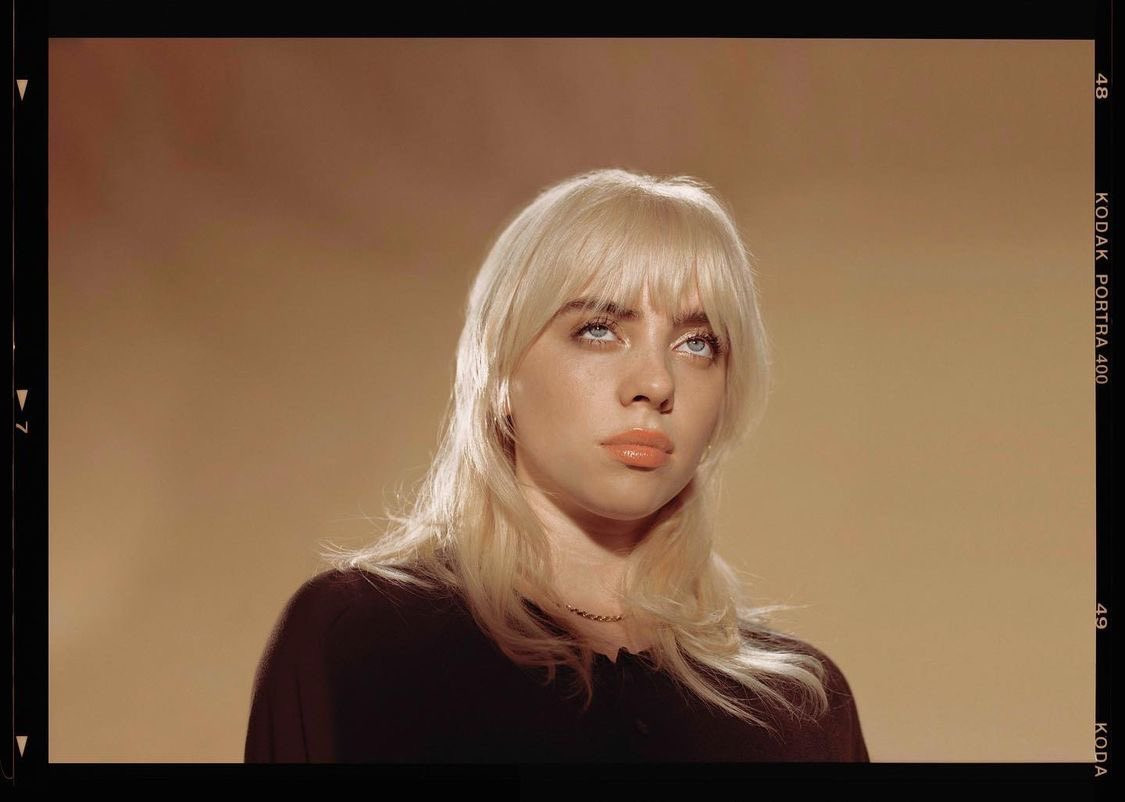 Billie Eilish in golden dress
Billie Eilish in golden dress
6. GOLDWING, 7. Not My Responsibility & 8. OverHeated: Addressing Exploitation and Body Image
“GOLDWING” marks a shift towards deeper thematic exploration. Opening with a verse from an ancient Hindu poem translated by Gustav Holst, the song immediately establishes a sense of ethereal beauty and ancient wisdom. The “gold-winged angel” metaphor symbolizes innocence and vulnerability in the face of exploitation. The song transitions into a darker, heavier sound, with Billie warning against those who “claim you like a souvenir, just to sell you in a year.” Despite being the album’s shortest track, “GOLDWING” delivers a powerful message about the predatory nature of fame and exploitation.
This theme continues into “Not My Responsibility,” a spoken-word interlude that directly addresses body image and public scrutiny. Initially presented visually at concerts, the interlude questions the relentless judgment Billie faces regarding her appearance. She poignantly asks, “Is my value based only on your perception? Or is your opinion of me not my responsibility?” In a Spotify interview, Billie expressed her frustration that the message of “Not My Responsibility” was often misinterpreted as simple “body positivity,” while the online discourse continued to dissect and criticize her appearance.
“OverHeated” directly follows, delving into a specific incident where paparazzi photos of Billie in a tank top sparked viral commentary about her body. The lyrics directly confront this invasive scrutiny, questioning the media’s obsession with her physical appearance. Lines like “Did you really think this is the right thing to do? Is it news? News to who? That I really look just like the rest of you,” highlight the absurdity of the public’s fixation. She further challenges unrealistic beauty standards, singing, “I was only built like everybody else now, but I didn’t get a surgery to help out, ’cause I’m not about to redesign myself now, am I?” These three tracks form a powerful triptych addressing exploitation, body shaming, and the pressures of fame.
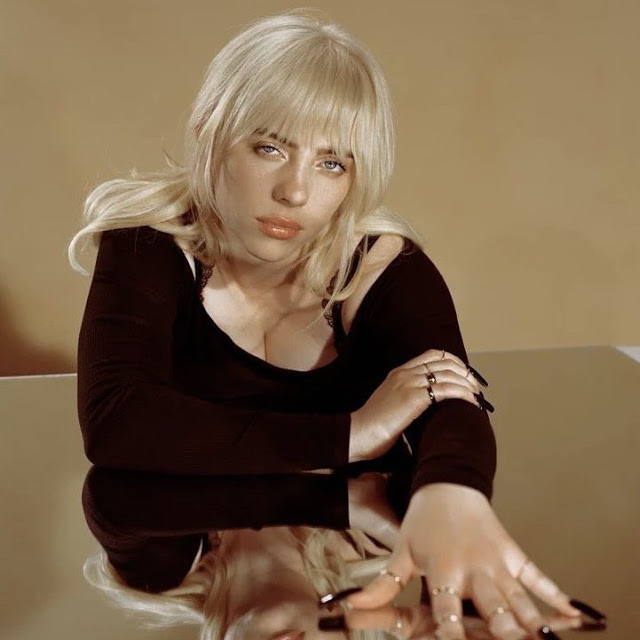 Billie Eilish looking at camera in black and white
Billie Eilish looking at camera in black and white
9. Your Power: A Ballad Against Abuse of Power
“Your Power,” the lead single announcing Happier Than Ever, is a raw and emotionally charged ballad addressing the damaging effects of power imbalances and exploitation, particularly in relationships between younger women and older men. Billie shared with British Vogue that the song is not about one specific person but reflects “many different situations that we’ve all either witnessed or experienced.” Her Instagram post accompanying the release urged listeners to “Try not to abuse your power.”
The lyrics are unflinching in their portrayal of manipulation and betrayal. Lines like, “I thought that I was special, you made me feel like it was my fault you were the devil,” and “And you swear you didn’t know, you said you thought she was your age. How dare you?” are both heartbreaking and accusatory. Choosing “Your Power” as a lead single demonstrated Billie’s courage to use her platform to address sensitive and important societal issues.
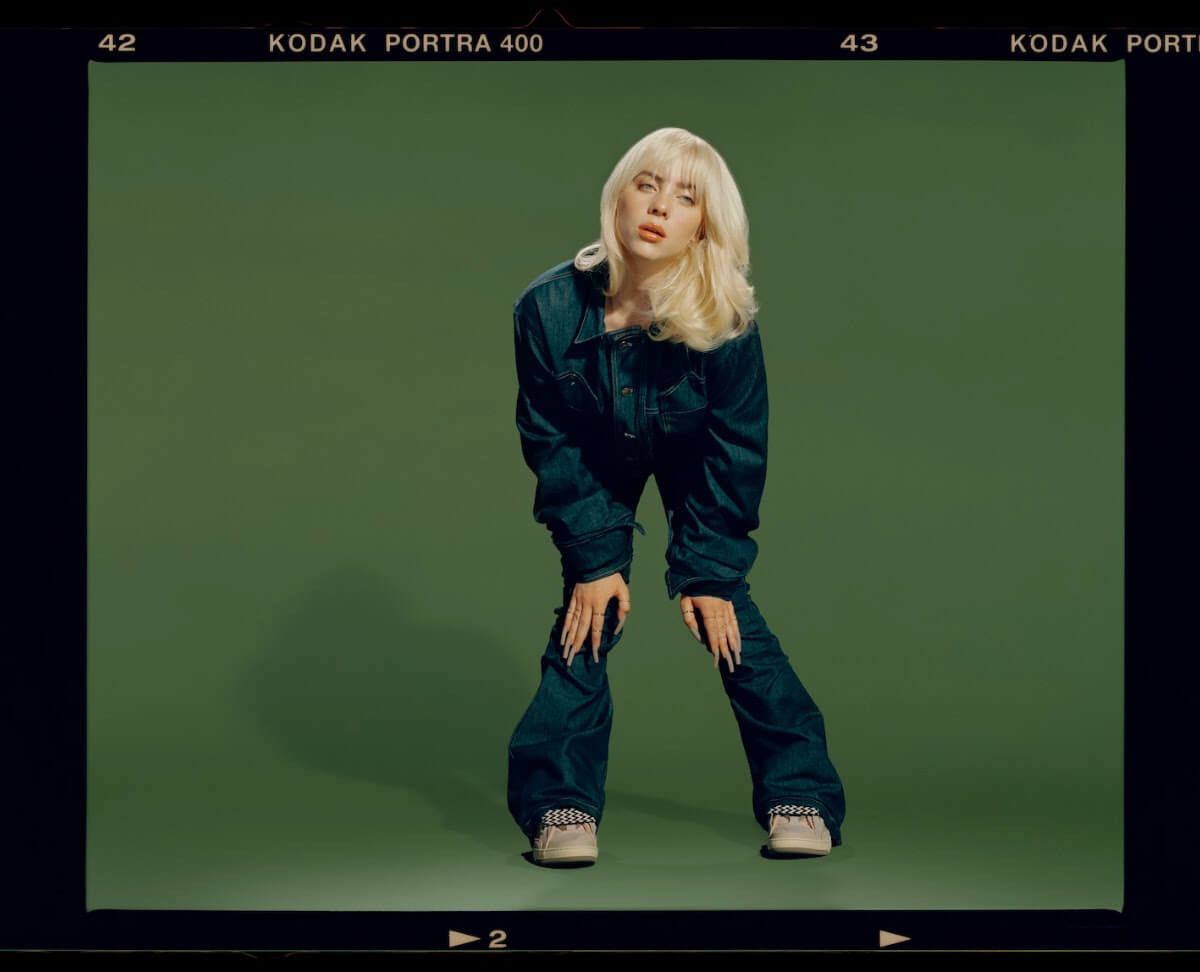 Billie Eilish in red dress
Billie Eilish in red dress
10. NDA & 11. Therefore I Am: Fan Favorites with Distinct Styles
“NDA” and “Therefore I Am” are standout tracks and fan favorites, each showcasing different facets of Billie’s artistry. “NDA” is a complex and multi-layered song exploring themes of fame, privacy, and the consequences of different life choices. It touches upon an incident with a stalker and the challenges of maintaining personal boundaries. The line, “Had a pretty boy over, but he couldn’t stay, on his way out, I made him sign an NDA,” is both darkly humorous and indicative of the pressures of her public life. “NDA” also cleverly references lyrics from other Happier Than Ever songs, creating a cohesive narrative within the album. Billie described “NDA” as “very all over the place and up for interpretation,” and lines like “You couldn’t save me, but you can’t let me go,” add to its enigmatic and captivating nature. The song’s haunting production and vocal effects contribute to its unique atmosphere.
“Therefore I Am” offers a more quintessential Billie Eilish sound. It embodies the sharp, witty songwriting and alternative pop production that have become her trademarks. The song is assertive and independent, with lyrics that dismiss unwanted attention and assert self-worth. Its catchy melody and confident delivery make it an instant earworm, and it has become a staple in her discography. The transition between “NDA” and “Therefore I Am” is particularly striking, creating a dynamic and engaging listening experience.
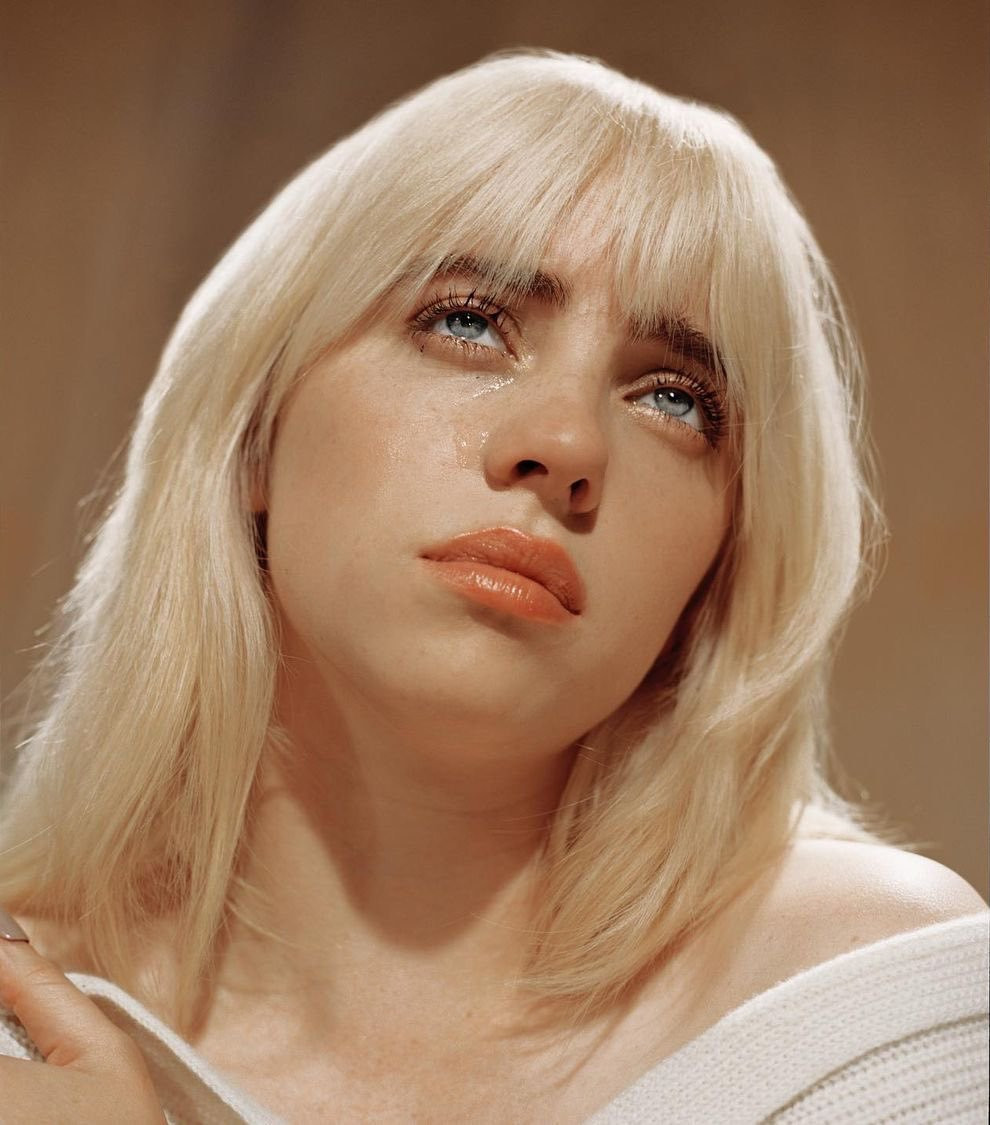 Billie Eilish in white outfit and blonde hair
Billie Eilish in white outfit and blonde hair
12. Happier Than Ever: The Album’s Emotional Climax
The title track, “Happier Than Ever,” is undeniably the emotional and artistic centerpiece of the album and arguably Billie Eilish’s best song to date. It begins as a delicate, almost vintage ballad reminiscent of Julie London, an artist Billie cited as an inspiration for Happier Than Ever. The opening lyrics, “When I’m away from you, I’m happier than ever, wish I could explain it better, I wish it wasn’t true,” are deceptively simple yet profoundly impactful, capturing the bittersweet relief of escaping a toxic relationship.
The song then explodes into a cathartic rock anthem in its second half, a dramatic and unexpected shift that amplifies the raw emotion. This sonic transformation mirrors the building frustration and anger expressed throughout the album, culminating in an intense release. Lines like, “I don’t relate to you, ’cause I’d never treat me this shitty, you made me hate this city,” are delivered with visceral power. The climax features Billie screaming raw, unfiltered emotions, culminating in the lines, “And I don’t talk shit about you on the internet, never told anyone anything bad, ’cause that shit’s embarrassing, you were my everything, and all that you did was make me f*ckin’ sad.” Finneas’s powerful guitar solo at the song’s conclusion further enhances its emotional impact. “Happier Than Ever” is a groundbreaking track that showcases Billie’s versatility and willingness to push musical boundaries.
13. Male Fantasy: Reflection and Acceptance at the Album’s Close
While “Happier Than Ever” feels like a natural album closer, Billie opted to end with “Male Fantasy.” She explained that ending on an angry note felt inappropriate, and “Male Fantasy” offers a more nuanced and reflective conclusion. The song explores themes of coming to terms with past relationships, both romantic and platonic, and accepting the transient nature of connections. Lyrics like, “I worry this is how I’m always gonna feel, but nothing lasts, I know the deal,” convey a sense of melancholy acceptance. The album ends with the poignant line, “I know I should, but I could never hate you,” suggesting a complex mix of emotions – pain, understanding, and a refusal to succumb to bitterness.
Happier Than Ever is a deeply personal and artistically ambitious album. Through its diverse sonic landscape and unflinchingly honest lyrics, Billie Eilish invites listeners into her world, sharing her experiences of growth, vulnerability, and the ongoing pursuit of happiness.
What are your favorite songs from Happier Than Ever? Share your thoughts in the comments below!
-Melissa ♡
Photo Credit:
Billie Eilish, Kelia Anne MacCluskey, Interscope Records, Darkroom Records
Related Posts:
